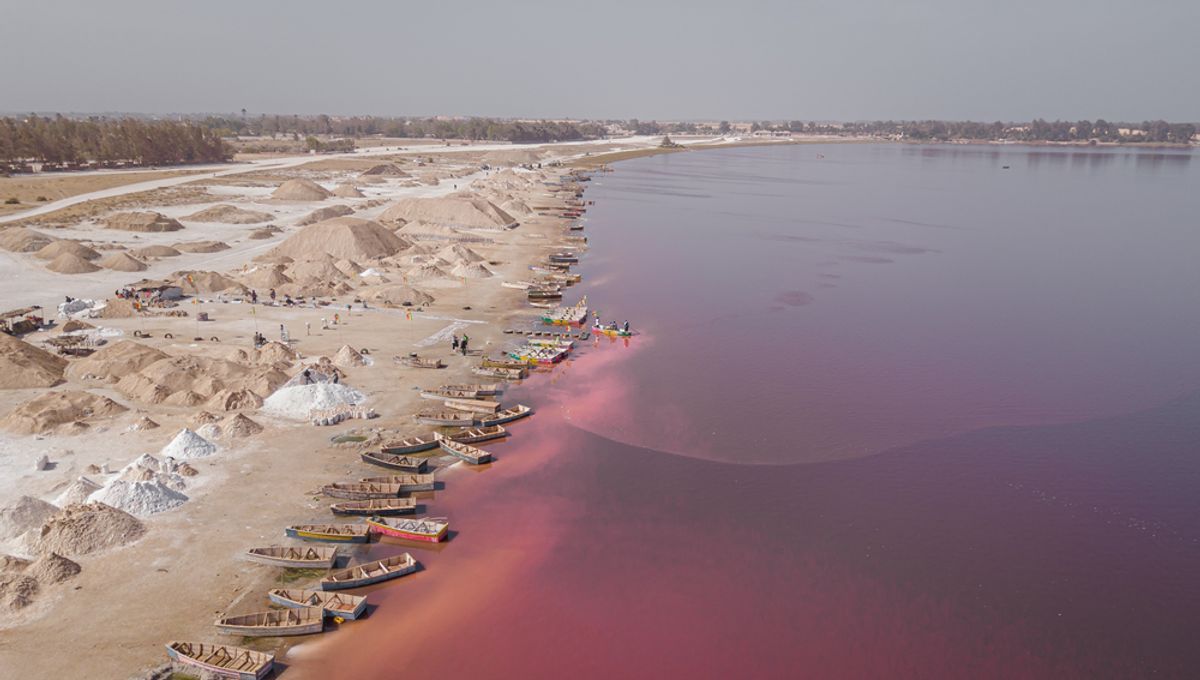
Lake Retba has lost its vibrant pink hue this wet season. Before and after satellite images from NASA Earth Observatory show how the waters of the rosy lake have turned a more typical blue-green following a downpour of torrential rain.
The lake can be found in Senegal, West Africa. It owes its coloration to single-celled algae called Dunaliella salina. The algae is typically green, but it produces protective orangey-red beta carotene pigments when under harsh conditions – just like in Lake Retba.
Because the lake can be breached by waters of the Atlantic Ocean, it’s super-salty. In fact, the water is so high in salinity that people can easily float in it just like the Dead Sea.
While this is good for salt miners, the high salinity water stresses out the D. salina and forces them to pump out protective pigments, resulting in the lake’s usually dashing color.
The lake is typically at its pinkest during the dry season between November and June, but the color fades during the region’s wet season, July to October, when the salty waters become diluted by rainwater.
This wet season has proved to be exceptionally wet. Heavy rainfall in early August and early September resulted in deadly flooding in the capital Dakar and surrounding areas.
Another consequence of this was flood water reaching Lake Retba and flooding it with fresh water. As a result, the resident algae stopped producing its protective pigments and the lake returned to a greenish color.
All of this was captured by Landsat satellites curling the globe in low-Earth Orbit. Recently released images show Lake Retba on May 19 appearing nice and rosy. Another image, taken on September 16, then shows the lake appearing more or less the same color as the nearby Atlantic Ocean.
Lake Retba isn’t the only body of water with this distinctive pink coloration. Lonar Lake can be found in a meteorite impact crater in India, around 500 kilometers (311 miles) east of Mumbai. Just like Senegal’s pink lake, this water often turns a vivid shade of pinkish red due to salinity and the presence of the same algae.
Source Link: Why Senegal's Hot Pink Lake Has Lost Its Rosy Color This Summer